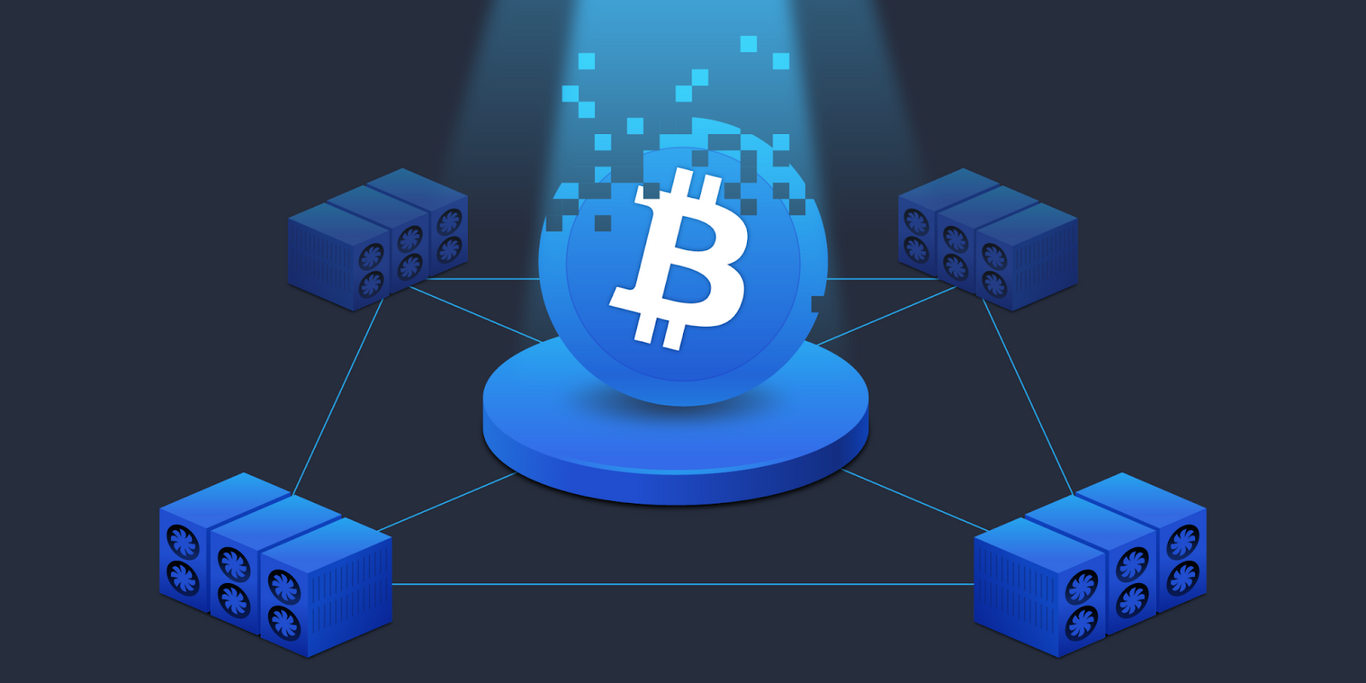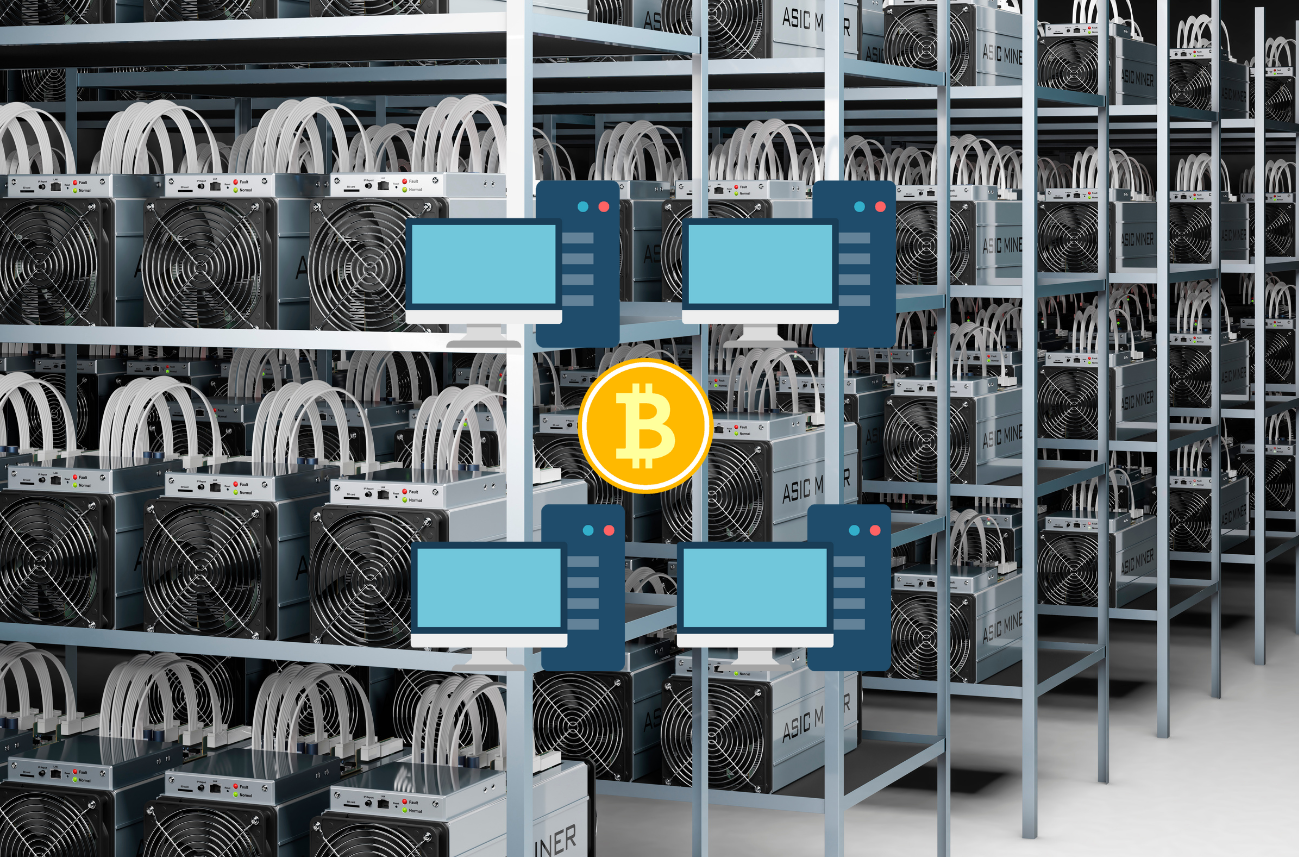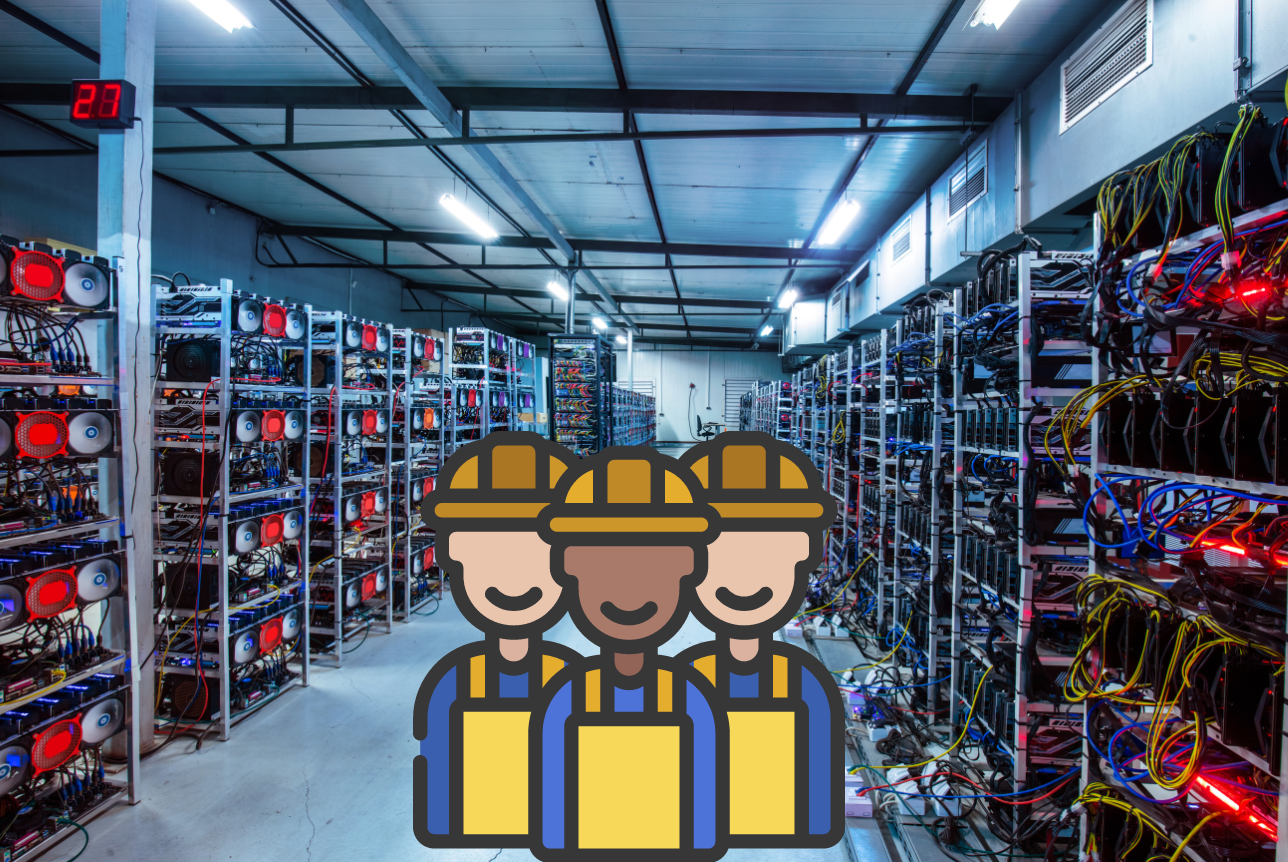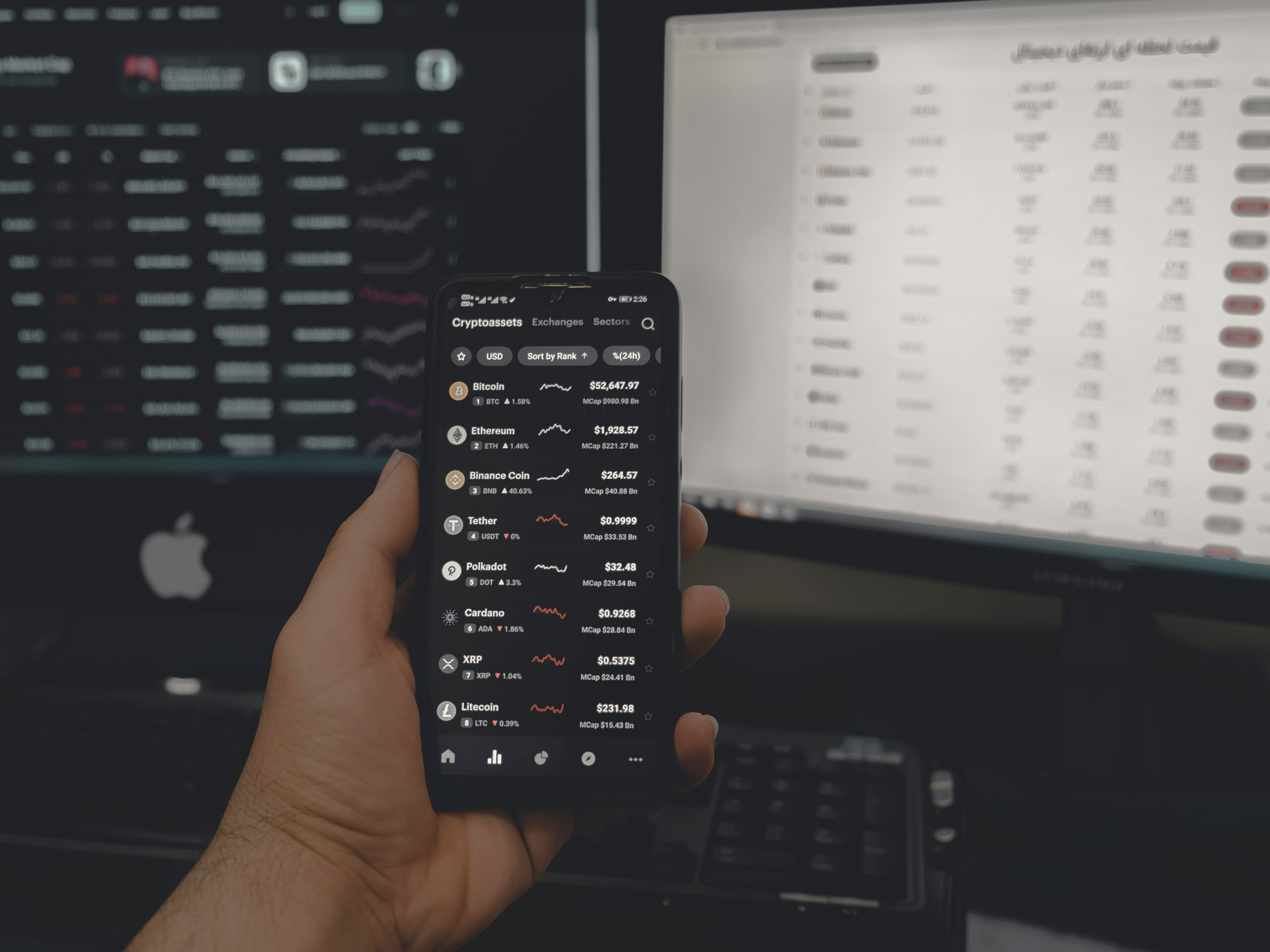What is Cloud Mining in Cryptocurrency? The Pros & Cons
- Cloud mining refers to mining cryptocurrency using the cloud. You use someone else's hardware or power to do the mining for yourself.
- Cloud mining companies handle the hardwork for you on a contract-basis, but the market is riddled with scams so be careful before making a purchase.
- Cloud mining is accessible, easy, serves as passive income, and risk-averse, but it's also prone to transparency issues, lower profits, and regulatory concerns.
As the world of crypto expands, so do the methods of acquiring them. One of these trending methods is known as Cloud Mining. It might seem like a technical buzzword, but cloud mining is a simple process in which individuals mine cryptocurrencies like Ethereum and Bitcoin without having to purchase and manage the mining hardware themselves.
Of course, there’s a lot more to it than just that. In this article, we will explore the intricacies of cloud computing; how it works, and why one might prefer it without boring you with the unnecessary details.
Table of Contents:

What is Cloud Mining?
Cloud mining refers to mining cryptocurrency using the cloud. When cloud mining, you don’t need your own dedicated hardware or any other device, because you simply let someone else do it for you in the cloud. There are various types of cloud mining that we’ll explore next.
The term stems from the concept of cloud computing, similar to cloud gaming, which refers to using data hosted on a remote server to carry out tasks and processes rather than having it on a local server, aka your own devices.
Methods of Cloud Mining
There are two methods for cloud mining. One involves the user directly renting hardware, and the other involves the user having to rent mining power known as “hash power.” However, some experts think that instead of cloud mining, a user should purchase cryptocurrency like Bitcoin since it’s more risk averse.
1. Renting Hardware
In one type of cloud mining, users can rent mining hardware which gives them direct control over the amount of cryptocurrency they can earn. However, they have to be responsible for maintaining the mining speeds, ensuring that the hardware mines as it should. This kind of cloud mining is more suited for someone with experience and those who want a more hands-on process.
Think of it like renting a high-end gaming PC remotely to play the latest games without having the actual machine at your home.
2. Renting Hash Power
If renting hardware seems technical, then users can also rent hash power, which is trouble-free and requires little to no maintenance. Renting hash power allows customers to secure a share of a large mining company’s profits that manage all the hardware themselves while mining cryptocurrencies.
It’s akin to investing in a mutual fund, where you buy a share, and the fund manager handles all the investment decisions while taking a small cut as their fee.
How is Cloud Mining Actually Done?

Now, let’s go over the process of cloud mining and its constituents. We will explain the entire process in order, starting with:
Step 1: Cloud Mining Companies
The first and most crucial step is to choose a cloud mining company. Keep in mind that scams are affluent in the cloud mining space by fake companies promising high paybacks and ghosting the users after they pay for renting hash power. So, it’s essential that you conduct proper research before making the final call. To stay clear of such scams, make sure to keep these two vital tips in mind:
- Spelling and grammatical mistakes on the website.
- Lack of company addresses, or a fake address randomly generated by a website.
- Lack of any non-refundable payment options like fiat (USD, EUR, GBP currencies)
Companies like Genesis Mining or Hashflare have established reputations in the cloud mining industry, but always do your due diligence and see if the popular choice is actually right for you.
Step 2: Mining Packages
There are multiple tiers of packages that you can rent based on how much you are willing to spend and for how long. Think of these as a typical subscription for movies. The more you spend, the more mining power you get, which will allow you to increase your potential cryptocurrency output drastically. It’s akin to standard economies of scale, which means you’ll benefit more the bigger you or your operation is.
Step 3: Mining Pools
A lot of cloud mining companies allow users to choose which mining pool to contribute or rent their hash power from. Mining pools are a group of people working together to mine a whole block of cryptocurrency. The larger the pool, the more rewards they can farm together. Again, bringing back that point about scale.

Step 4: Renting Service
After researching and selecting the company you want to rent from and selecting your package and pool. Users have to pay the company to rent the hardware or hash power. The currency that these companies usually accept is stable cryptocurrency coins such as USDT.
Some companies might let you pay with fiat (normal currency) but it’s rare. This can also add to the validity of certain companies if they’re willing to accept fiat since it’s a refundable and trackable payment method which keeps you safer.
Step 5: Reward For Mining
When a mining pool successfully mines a cryptocurrency block, the reward is distributed among its members. The distribution is based on the amount of hash power each member contributed. To receive and store these rewards, users need to set up a compatible wallet. For instance, if you’re mining Ethereum, you’ll need a wallet that supports Ethereum; a Bitcoin-only wallet won’t work. There are two main types of wallets:
- Hardware Wallets: Physical devices like the Ledger Nano S or Trezor that securely store your private keys offline.
- Software Wallets: Digital applications like MetaMask or MyEtherWallet that manage your cryptocurrency holdings.
Most companies will generally only support hardware wallets.
Advantages of Cloud Mining

There are many advantages to cloud mining as compared to physical mining such as:
1. Accessibility and Convenience
Cloud mining eliminates the need for technical expertise, making it easier for anyone to enter the world of cryptocurrency mining without understanding the intricacies of setting up and maintaining mining rigs.
2. Cost-Efficiency
Traditional mining requires significant upfront investments in hardware and adds to your ongoing electricity costs. Cloud mining sidesteps these initial expenses, offering a more affordable entry point into the mining world.
3. No Maintenance Concerns
Mining rigs are notorious for generating heat and noise. With renting hash power or the hardware, the service provider handles these maintenance and deals with the environmental concerns, ensuring a hassle-free experience for you.

4. Passive Income Potential
The cloud mining provider takes over the operations once a user selects a mining contract and pays the necessary fees. This hands-off approach can lead to a steady stream of passive income as users earn rewards without active involvement.
Risks & Challenges of Cloud Mining
As with all investments, knowledge is power. By staying informed and understanding the nuances, individuals can confidently and clearly navigate the cloud mining realm.
1. Potentially Lower Profits
While cloud mining can be more accessible and seem cheaper due to no upfront investment, it doesn’t necessarily guarantee higher returns. The service providers have overhead costs and aim to profit themselves, which can sometimes result in reduced earnings for the user compared to traditional mining.

2. Lack of Control and Transparency
When you engage in cloud mining, you entrust a third party with the mining operations. This lack of direct control can be worrisome for some users, especially if the provider doesn’t maintain transparency about their operations, potential issues, or overall financial health. That’s why it’s so important to make an informed decision when picking your company of choice.
3. Market Volatility
The value of cryptocurrencies is known to fluctuate significantly. This volatility can directly impact the profitability of mining contracts, making potential returns unpredictable and adding an element of financial risk. This is not unique to cloud mining, in fact, if anything this is probably more applicable in physical mining, but it’s still a cause for concern nonetheless.
4. Contractual Limitations
Some cloud mining contracts come with terms that might not be favorable to the user. For instance, long contract durations, unclear terms about fees, or stipulations about minimum withdrawal amounts can make the venture less flexible and potentially less profitable. Consider consulting with an expert to alleviate these issues early on.

5. Regulatory Concerns
Cryptocurrency and mining operations’ legal status can differ across regions and may evolve over time. For instance, mining isn’t necessarily banned in Pakistan but “it will never be legalized.” It’s crucial to be well-informed about the rules both in your home country and in the location of the cloud mining provider to guarantee adherence to all relevant legal frameworks.
Conclusion
In the dynamic landscape of cryptocurrency, cloud mining emerges as a modern approach to the age-old mining process. While it offers a more accessible gateway into the crypto world, it’s not without its complexities.
As technology advances and the demand for cryptocurrencies grows, cloud mining may become an even more prevalent and streamlined method for individuals to engage with the crypto ecosystem, potentially simplifying access to the benefits of blockchain technology for all.
 Reviewed by
Reviewed by 




